Biography
Ridpath attended Toronto's Upper Canada College (Head Prefect, 1955) and then later the University of Toronto, from which he received both an undergraduate degree in Engineering and an MBA, while also setting Canadian national swimming records and captaining the University of Toronto swim team.
He obtained his doctorate in economics from the University of Virginia (1974), but his major work was in the area of intellectual history, where he emphasized the power of philosophical ideas in setting the course of history.
Despite receiving an award by the Ontario Council of University Faculty Associations for outstanding contribution to university teaching, [4] he was nearly terminated in the early 1970s for his radical outspoken views and his obvious contempt for the popular intellectual movements of the late 20th century. However, with support from Nobel laureate Friedrich von Hayek, after a lengthy struggle, he was given tenure and promoted, rather than being fired. Upon his retirement in 2001 he was named professor of the year by the university and honoured with a nomination for Canadian professor of the year.
Ridpath was an acquaintance of Ayn Rand and served on the board of directors of the Ayn Rand Institute from 1994 until his retirement in 2011. He authored a two-part article on Friedrich Nietzsche for The Objectivist Forum, which became the basis of a longer treatment devoted to exposing Nietzsche's irrationalism and brooding fatalism, arguing that Nietzsche at root was not an individualist and that Ayn Rand's pro-reason, pro-volition philosophy is actually the opposite of Nietzsche's.
He was an expert on the history of the founding of the United States and on its Founding Fathers, lecturing at several Objectivist conferences on their achievements. A lifelong admirer of American Revolutionary ideals, he named his firstborn son "Jefferson" after Thomas Jefferson.
In economics, two of his most influential lectures were "Keynes and the Death of Gold," and "The Philosophical Origins of Antitrust," which attacked Frank Knight's notion of "pure and perfect competition." He also regularly gave economics courses at York University, and lectured on Say's law at a conference in the UK in the 1990s.
Throughout his career, Ridpath argued for laissez-faire capitalism, not just as the most practical but also the only moral social system. He defended the morality of capitalism against socialism in many debates on college campuses across North America including Yale University, Harvard University, the University of Chicago, UCLA and Berkeley, and notably against former premier of Ontario Bob Rae.
He and his wife, Virginia Grant Ridpath, had three children, and he lived in Toronto from 1967 until his final year, when he moved to a nursing home in Windsor Ontario. He was a lifelong summer resident of Canoe Lake in Ontario's Algonquin Provincial Park.

Alice O'Connor, better known by her pen name Ayn Rand, was a Russian-born American author and philosopher. She is known for her fiction and for developing a philosophical system she named Objectivism. Born and educated in Russia, she moved to the United States in 1926. After two early novels that were initially unsuccessful and two Broadway plays, Rand achieved fame with her 1943 novel The Fountainhead. In 1957, she published her best-selling work, the novel Atlas Shrugged. Afterward, until her death in 1982, she turned to non-fiction to promote her philosophy, publishing her own periodicals and releasing several collections of essays.
Objectivism is a philosophical system named and developed by Russian-American writer and philosopher Ayn Rand. She described it as "the concept of man as a heroic being, with his own happiness as the moral purpose of his life, with productive achievement as his noblest activity, and reason as his only absolute".

Nathaniel Branden was a Canadian–American psychotherapist and writer known for his work in the psychology of self-esteem. A former associate and romantic partner of Ayn Rand, Branden also played a prominent role in the 1960s in promoting Rand's philosophy, Objectivism. Rand and Branden split acrimoniously in 1968, after which Branden focused on developing his own psychological theories and modes of therapy.

Leonard Sylvan Peikoff is a Canadian American philosopher. He is an Objectivist and was a close associate of Ayn Rand, who designated him heir to her estate. He is a former professor of philosophy and host of a nationally syndicated radio talk show. He co-founded the Ayn Rand Institute (ARI) in 1985 and is the author of several books on philosophy.
This is a bibliography for Ayn Rand and Objectivism. Objectivism is a philosophical system initially developed in the 20th century by Rand.

George Gerald Reisman is an American economist. He is Professor Emeritus of Economics at Pepperdine University and the author of The Government Against the Economy (1979), which was praised by both F. A. Hayek and Henry Hazlitt, and Capitalism: A Treatise on Economics (1996). He is known as an advocate of free market or laissez-faire capitalism.
David Christopher Kelley is an American philosopher. He is a professed Objectivist, though his position that Objectivism can be revised and influenced by other schools of thought has prompted disagreements with other Objectivists. Kelley is also an author of several books on philosophy and the founder of The Atlas Society, an institution he established in 1990 after permanently dissociating with Leonard Peikoff and the Ayn Rand Institute.

The Ayn Rand Institute: The Center for the Advancement of Objectivism, commonly known as the Ayn Rand Institute (ARI), is a 501(c)(3) nonprofit think tank in Santa Ana, California, that promotes Objectivism, the philosophy developed by Ayn Rand. The organization was established in 1985, three years after Rand's death, by businessman Ed Snider and Leonard Peikoff, Rand's legal heir.
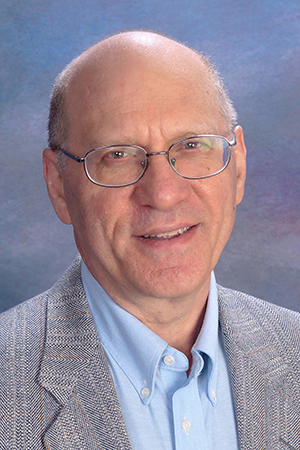
Peter Schwartz is an American journalist. He is an Objectivist and writes opinion pieces and books from that viewpoint.

Harry Binswanger is an American professor and author. He is an Objectivist and a board member of the Ayn Rand Institute. He was an associate of Ayn Rand, working with her on The Ayn Rand Lexicon and helping her edit the second edition of Rand's Introduction to Objectivist Epistemology. He is the author of How We Know: Epistemology on an Objectivist Foundation (2014).

Objectivism: The Philosophy of Ayn Rand is a 1991 book by the philosopher Leonard Peikoff, in which the author discusses the ideas of his mentor, Ayn Rand. Peikoff describes it as "the first comprehensive statement" of Rand's philosophy, Objectivism. The book is based on a series of lecture courses that Peikoff first gave in 1976 and that Rand publicly endorsed. Peikoff states that only Rand was qualified to write the definitive statement of her philosophic system, and that the book should be seen as an interpretation "by her best student and chosen heir." The book is volume six of the "Ayn Rand Library" series edited by Peikoff.

Chris Matthew Sciabarra is an American political theorist born and based in Brooklyn, New York. He is the author of three scholarly books—Marx, Hayek, and Utopia; Ayn Rand: The Russian Radical; and Total Freedom: Toward a Dialectical Libertarianism—as well as several shorter works. He is also the co-editor, with Mimi Reisel Gladstein, of Feminist Interpretations of Ayn Rand and co-editor with Roger E. Bissell and Edward W. Younkins of The Dialectics of Liberty: Exploring the Context of Human Freedom. His work has focused on topics including Objectivism, libertarianism, and dialectics.
The Nathaniel Branden Institute (NBI), originally Nathaniel Branden Lectures, was an organization founded by Nathaniel Branden in 1958 to promote Ayn Rand's philosophy of Objectivism. The institute was responsible for many Objectivist lectures and presentations across the United States. Many of those associated with NBI worked on the Objectivist magazines, The Objectivist Newsletter and The Objectivist.
The Objectivist movement is a movement of individuals who seek to study and advance Objectivism, the philosophy expounded by novelist-philosopher Ayn Rand. The movement began informally in the 1950s and consisted of students who were brought together by their mutual interest in Rand's novel, The Fountainhead. The group, ironically named "The Collective" due to their actual advocacy of individualism, in part consisted of Leonard Peikoff, Nathaniel Branden, Barbara Branden, Alan Greenspan, and Allan Blumenthal. Nathaniel Branden, a young Canadian student who had been greatly inspired by The Fountainhead, became a close confidant and encouraged Rand to expand her philosophy into a formal movement. From this informal beginning in Rand's living room, the movement expanded into a collection of think tanks, academic organizations, and periodicals.
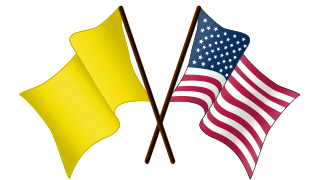
Ayn Rand's philosophy of Objectivism has been, and continues to be, a major influence on the right-libertarian movement, particularly libertarianism in the United States. Many right-libertarians justify their political views using aspects of Objectivism.
Jill McCalla Vickers is a Canadian feminist political scientist and retired emeritus professor at Carleton University in Ottawa, Ontario, Canada. Vickers is particularly notable for her work in the field of gender in politics.
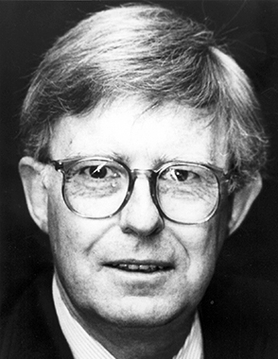
Robert Hessen was an American economic and business historian. He was a professor at the Graduate School of Business at Stanford University and a senior research fellow at Stanford's Hoover Institution. He was an Objectivist and authored several books, analyzing business and economic issues from an Objectivist perspective.
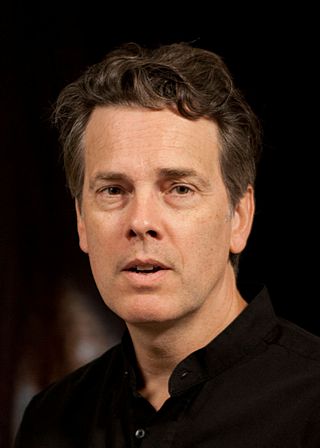
Stephen Ronald Craig Hicks is a Canadian-American philosopher. He teaches at Rockford University, where he also directs the Center for Ethics and Entrepreneurship.
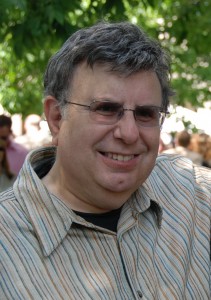
Allan Stanley Gotthelf was an American philosopher. He was a scholar of the philosophies of both Aristotle and Ayn Rand.
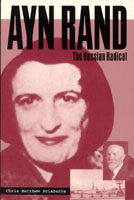
Ayn Rand: The Russian Radical is a 1995 book by Chris Matthew Sciabarra tracing the intellectual roots of 20th-century Russian-American novelist and philosopher Ayn Rand and the philosophy she developed, Objectivism.














